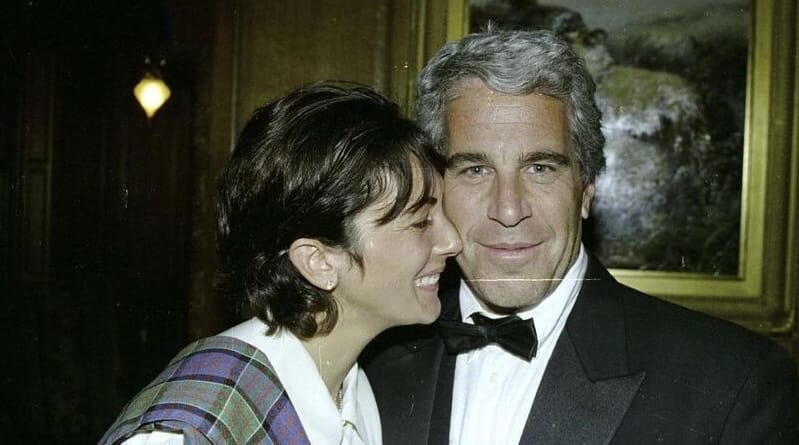- Investor Briefcase
- Posts
- The mystery behind Epstein's wealth in finance
The mystery behind Epstein's wealth in finance
How Epstein built his wealth in finance through secrecy and manipulation.
Jeffrey Epstein built a fortune in finance through secrecy and manipulation, embedding himself in elite circles while keeping the origins of his wealth disturbingly opaque. From a brief stint on Wall Street to managing the wealth of billionaires, his financial career masked a much darker reality.

This week, we explore how Epstein went from a schoolteacher to a financier with global influence before he was arrested for human trafficking, exposing a web of power that had shielded him for decades:
💼 From Teaching to Trading
💥 The Mystery Behind His Wealth
📈 The Downfall and Aftermath
— Investor Briefcase Team



Jeffrey Epstein’s financial career did not begin in a prestigious firm or Ivy League business school. Born in Brooklyn in 1953, Epstein studied physics and math at Cooper Union and later NYU but never completed a degree. Despite this, he landed a job in 1974 teaching calculus and physics at Manhattan’s elite Dalton School, a position secured through his charm, connections, and a fake diploma.
It was at Dalton that Epstein caught the attention of Alan Greenberg, the then CEO of Bear Stearns, who was impressed by his intelligence and ability to connect with wealthy parents of students. Greenberg offered Epstein a job at Bear Stearns in 1976, where he started in the risk arbitrage division, which was a high-stakes role that involved trading on market-moving events like mergers and acquisitions.
“He was always a fast talker, incredibly confident, and knew how to sell an idea.”
Epstein’s reputation as a skilled dealmaker grew, and by 1980, he was promoted to limited partner. But in 1981, his career at Bear Sterns came to an abrupt halt. Reports vary on why he left, with some claiming that he was forced out over regulatory concerns related to a questionable trade, while others suggest he left voluntarily to start his own firm. Whatever the reason, it set him on a new, more secretive financial path.


After leaving Bear Stearns, Epstein founded Intercontinental Assets Group, a financial consulting firm that claimed to specialize in recovering stolen money for clients, though little is known about its actual operations. By the late 1980s, he rebranded as J. Epstein & Co., a firm that offered wealth management services exclusively for billionaires.

His most notable and lucrative client was Leslie Wexner, the billionaire behind L Brands, which owned Victoria’s Secret and Bath & Body Works. Wexner gave Epstein unprecedented control over his finances, even granting him power of attorney. With this unusual level of trust from a billionaire it allowed Epstein to sign checks, buy properties, and restructure assets in his name.
Despite claiming to manage money for the ultra-wealthy, there was little evidence that Epstein made conventional investments. Unlike hedge fund titans like Steve Cohen or Ray Dalio, he never publicly disclosed significant trades or managed institutional money. His firm had no visible track record, no analysts, and no discernible investment strategy.
“The way he claimed to operate was unlike any hedge fund I’ve ever seen. There was no team, no oversight, just Epstein and his list of connections with powerful people.”
Speculation grew that Epstein’s wealth stemmed not from investment acumen but rather from brokering deals, facilitating financial introductions, and possibly leveraging his high-profile network in ways that were never fully understood. Some believed he operated in the shadows, offering “consulting” services to billionaires seeking discretion rather than financial returns.

Sponsored by Blind Barrels
Invest in the world’s only true double blind whiskey tasting.
Voted "Best Whiskey Gift Of The Year" by Men's Gear
Industry-low churn rate of less than 3.5%
Surpassed 2024 subscriber projections
Read the Offering information carefully before investing. It contains details of the issuer’s business, risks, charges, expenses, and other information, which should be considered before investing. Obtain a Form C and Offering Memorandum at https://wefunder.com/blind.barrels/



Epstein’s fortune and influence allowed him to move among some of the world’s most powerful figures. Despite a 2008 conviction for soliciting a minor, he continued to operate within elite circles. His lenient plea deal, which allowed him to leave jail six days a week for work, raised questions about who was protecting him.
“Epstein’s wealth, influence, and connections allowed him to operate above the law in ways that remain deeply troubling.”
In 2019, federal authorities reopened their investigation, leading to Epstein’s arrest on charges of sex trafficking. The case drew intense scrutiny, as prosecutors alleged that he ran an extensive operation that exploited minors. His wealth, already mysterious, became even more suspect as investigators sought to trace the origins of his fortune.
One month after his arrest, Epstein was found dead in his jail cell. His death, ruled a suicide, only deepened the mystery. Investigators uncovered a network of offshore accounts, shell companies, and layers of financial secrecy that made it nearly impossible to track his assets. His estate, valued at over $577 million, included luxury properties in New York, Paris, Palm Beach, a private island in the Caribbean, and an art collection worth tens of millions.
To this day, the full truth behind Epstein’s wealth remains one of finance’s greatest unsolved mysteries. While most billionaires leave behind audited returns, investor reports, and clear business dealings, Epstein’s financial empire vanished as mysteriously as it was built. His fortune and influence collapsed under the weight of criminal allegations, leaving behind more questions than answers.

Sponsored by AI Capital News
This AI Stock Could Be Your Next Big Portfolio Win.
🚀 IPO Success – Achieved a remarkable 75% gain within just two weeks of trading
💰 Tiny $120M Market Cap – Early opportunity = HUGE growth potential
🦠 97% Accurate AI Tech – A game-changing healthcare innovation that could save lives

More Stories
Other Financiers Convicted of Crimes
> Bernie Madoff: Former chairman of Nasdaq and mastermind behind the largest Ponzi scheme in history. Convicted in 2009 of defrauding investors out of approximately $65 billion, Madoff was sentenced to 150 years in prison.
> Allen Stanford: Financier and former chairman of Stanford Financial Group. Convicted in 2012 for running a $7 billion Ponzi scheme through fraudulent certificates of deposit, Stanford was sentenced to 110 years in prison.
> Martin Shkreli: Hedge fund manager and former CEO of Turing Pharmaceuticals. Convicted in 2017 for securities fraud related to his hedge fund operations, Shkreli was sentenced to seven years in prison.

Each week we profile the most notorious investment stories.
Got an idea for a story? Email us at [email protected]